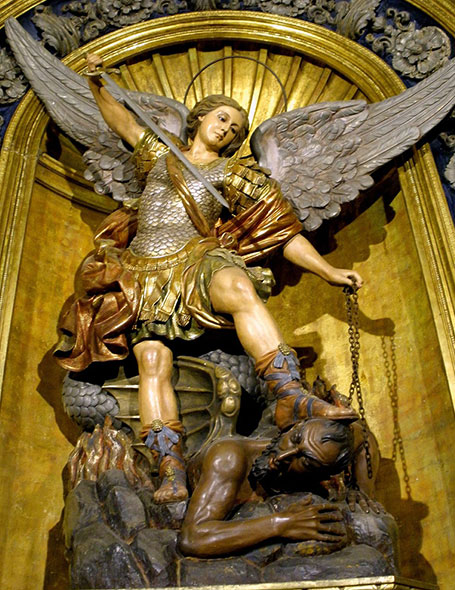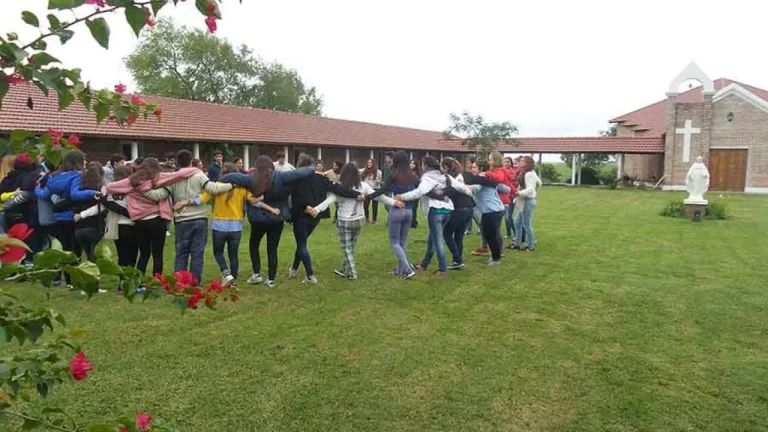The Common Good as Patrimony of the Society
The Common Good is a type of concept that is generally understood as referring to all kinds of benefits that are granted to a community or to citizens. In the following article you will know everything about What is the Common Good? and what is its meaning.
Common benefit
The Common Good becomes a type of concept that can generally be understood as everything from which all citizens or the social systems themselves benefit, in addition to the institutions and socio-economic means of the citizens. which we all come to depend on to function in a way that benefits all people.
Recently, a man named John Rawls came to define it as a kind of “certain general conditions that become to the advantage of all”. According to what Renate Mayntz says, all the great sciences are those that share a type of interest in the necessary pre-conditions to be able to obtain a certain type of end or social control of technical development for the common good that reaches be perceived as desirable.
Consequently, the type of concept of Common Good is the one that contains the different elements or can be studied from different perspectives. Like, for example: the general wealth of economic well-being, the general or public interest of political science and finally the “Bonun commune” of the philosophical tradition of European or Christian origin.
What is the common good?
The general meaning of the term common good is one that refers to everything that can be used or used by all people. In other words: from a common good they can obtain all the benefits of all the people in a community.
From what this same idea is, the notion is used with the different nuances or with the scope in the different areas. For what philosophy becomes, common goods are those that are usually shared by all members of a society, who benefit from them. It is not only about physical goods, but also about symbolic or abstract goods.
The common good, in this same sense, in the same way that it becomes an end of society. The State, as a kind of governing body, is usually the one that has or has the duty to protect and also to promote the common good since it is redound in terms of benefits for all inhabitants. The social conditions that come to guarantee freedom, as well as justice and peace and the equitable distribution of all material goods that are essential become part of the common good.
It should be noted that the common good is not formed with what is usually the sum of all the assets of each person in a society or community. The common good becomes indivisible and can only be achieved and also increased through the collaboration of the different members of the community that comprise it.
Economic Aspect: The Common Wealth
From a point of view, it is also possible to vote through general economic papers, the type of concept is the one that admits the various possible meanings. For example, it can be applied to that good that already came to belong or is of a type of usufruct to a community or even to society as a whole.
This type of meaning dates back to antiquity, and is differentiated in turn into about 2 large sectors that are: communal property as such and state property or even public property. Some of the classics of political economy are those who perceived the evolution of the various relationships or of the social control of technological systems for the common good of production as leading inevitably towards their common ownership.
That kind of vision was the one that strongly influenced that of some of the economists, such as Joseph Alois Schumpeter, however, it enjoyed little application in the economy of Western countries during a good part of the 20th century. . However, currently there has been a kind of revival of interest in this same aspect of the concept, especially in what is communal property as opposed to the so-called state or public property.
The second meaning of the common good as that which becomes for usufruct or for common consumption is the one that derives from a kind of suggestion of a man named Paul Samuelson about public goods, which would become all those of which whose consumption by one individual is not what decreases its availability to others.
The term also alludes to what could be the economic convenience or the general socio-economic well-being of a class of society or even a community or the situation that maximizes the sum of the benefit or utility of all and others. each of the individuals.
Social Aspect: The Common Welfare
The interest of this point of view is not focused on people but rather on communities or societies. In the words of Simón Bolívar that he says: “They are human rights: freedom, as well as security, prosperity and also equality.
General happiness, which becomes the object of society, which consists in the perfect enjoyment of these rights” and “The most perfect system of government becomes all that which produces the greatest possible amount of happiness, a greater amount of social security and also a greater amount of political stability”.
In this kind of perspective there can be no common good unless societies are integrated and become stable (this means that there is a kind of social cohesion). In other words: unless such social systems become viable in the long run. However, what increases that kind of social viability does not precisely increase individual utility or what is the well-being of each person.
In this way, from this same point of view, the Common Good can be understood as if it were the sum of all the conditions of social life that can allow people to freely shape their lives. .
The purpose of the State, which comes to be understood as the politically organized society, would then become to provide all individuals with the means so that they can effectively carry out those same elections.
It is a man named John Rawls, however, who introduces a kind of distinction between “good,” which amounts to creating a much better kind of material world however that is defined, and “fair,” which amounts to to create the conditions for a kind of free and fair society, one that allows the pursuit of virtue, however, is not the one that prescribes how to do it or what exactly is desired.
Philosophical Aspect: The Common Good
By common good it is understood, in what is philosophy in general, everything that is shared by and also of benefit (in the sense of a great general improvement, not only physically but also economically) for all members of a community: “The common good is that which encompasses the set of all those conditions of social life, with which men, as well as families and all associations can achieve more fully and with great ease his own perfection.”
More explicitly, in the Social Doctrine of the Church in numeral 164, it goes so far as to say: From the dignity, unity and equality of all people derives, in the first place, the principle of the common good, to which it must refer all kinds of aspects of social life in order to find the fullness of meaning.
According to a first and general definition, it is understood as a common good throughout the world as “the set of conditions of social life that are what make possible for all associations and each of their members the fullest achievement and the easiest of perfection itself .
Features
It is the one that derives from human nature and therefore becomes superior to any kind of person: “The person who manages to order himself to what is the common good, because society, in turn, is very well ordered to the person and also to what is good for him, both being subordinate to the supreme good, which ultimately becomes God himself ” (Ibañez Langlois, José Miguel).
It does not become the sum of individual goods, nor is it about society, which is the mere sum of all individuals. The society that is necessary for the person to be fulfilled as such, and must present a kind of series of conditions that make possible the simultaneous development of the person and also of himself, towards what is perfection. that will occur historically and culturally.
We are not talking about some kinds of minimum development conditions, nor about something necessarily material (although the material becomes part of the “integrity” of human development). Rather, we speak of the conditions of possibility.
It results in the benefit of all: “The common good is at all times directed towards the progress of all people: ‘the social order and in the same way in its progress which must become subordinate to the good of all people and not the other way around’ […]. This type of order is the one based on truth, which is built on justice, and which is quickened by love .
reviews
According to Karl Popper, the “Platonic” perception of the common good comes to be qualified by Popper himself as a kind of utopian claim not only as a plan or a kind of concept of what the final society should be, but also as a strong government and also centralized, a small number of people the philosopher kings who are in charge of the government, as well as the benevolent ones.
However, ruthlessly not interested in what are the rights or benefits of individuals as such but in the community as an entity: According to the great philosopher named Plato: “…we do not establish the city by looking at what kind of people be especially happy, but so that the whole city is as happy as possible.” Or, in the words of Jacques Maritain who says:
“In such a way that the end of society does not become the individual good, nor the collection of the individual goods of each one of the individuals that constitute it. Such a formula was the one that would destroy society as such for the benefit of the different parties.
Which would lead to a kind of conception that is frankly anarchic, or to the old hidden anarchic conception of individualistic materialism, according to which the duties of the city are limited to ensuring respect for freedom. of each of the individuals, and of which the consequence becomes that the strong are the ones who freely oppress the weakest.
Meditate with Saint Josemaria
A man or a society that does not react to tribulations or injustices, and that does not make an effort to alleviate them, is not a man or a class of society to the measure of the love of the Heart of Christ. Christians always preserving at all times the most extensive freedom when it comes to studying and also putting into practice the different solutions and, therefore, with a logical pluralism, they must come to coincide in the identical desire for power serve humanity.
Otherwise, your Christianity will not become the Word and Life of the Lord Jesus: it will be a kind of disguise, a kind of deception in the face of God and also in the face of men. It is Christ who passes by. This becomes your task as a Christian citizen: to contribute so that the love and also the freedom of Christ prevail in all the manifestations of modern life: in culture and also in the economy, in work and in the same way in rest, as in family life and finally in social life.
Everyone’s Responsibility
The person cannot achieve fulfillment in isolation, this means, disregarding his being “with” and “for” others. This kind of truth is what imposes not a simple coexistence at the different levels of social life and also in relational life, but also in the incessant search, in a much more practical and not only ideal way, of the good, this that is to say, of the meaning and also of the truth that are found in the existing ways of social life.
No class of expressive form of sociability from what is the family, passing through the intermediate social group, as well as the association, in addition to the company of an economic nature, the city, the region, the State, even the class itself of community of peoples and Nations can elude the question of the common good itself, which becomes constitutive of its meaning and is the authentic reason for its very subsistence.
The dignity of the human person is what implies the search for the common good. The common good becomes a type of duty of all members of society: none of them is exempt from being able to collaborate, according to their own abilities, in its achievement and development. Each one must become concerned about being able to raise and at the same time manage to sustain institutions so that they improve all the conditions of people’s human life.
As a Catholic Christian person, you have the duty to act, to not have to abstain, to lend your own collaboration in order to be able to serve with great loyalty, and with great personal freedom, the common good. You, because of your condition as a Christian, cannot live turning your back on any kind of concern, on any kind of need of some of your fellow men.
So you must observe all your civic duties, without wanting to evade the fulfillment of any kind of obligation; and get to exercise all your rights, for the good of the community, without recklessly exempting anyone. Likewise, you must give Christian testimony at that moment.
The children of God, the citizens of the same category as the others, we have to get to participate “without fear” in all the activities and also in all the organizations that are honest of men, so that the Lord Jesus Christ is present in that place. Our beloved Lord is the one who is going to ask us to account for himself, in case, due to some negligence or for the same kind of comfort, each one of the people, freely, does not get to try to intervene in the works and also in the human decisions, on which the present and in the same way the future of society depend.
The Political Community
The kind of responsibility to come to build the common good is the one that falls, in addition to private persons, equally to the State, because it becomes the reason for being of the political authority. The concrete person, like the family, the intermediate bodies are not in a position to be able to reach their full development by themselves; Hence, the need for political institutions is derived, whose purpose is to make all necessary goods accessible to people, whether these are:
- Materials
- Cultural
- Morales
- spiritual
To be able to enjoy a truly human kind of life. In order to ensure the common good, the government of each country has a determined duty to harmonize the different sectoral interests with great justice. The common good is what requires prudence on the part of each one of the inhabitants, and even more so for that of all those who come to exercise authority. This consists of 3 essential elements that are:
First: It supposes, in the first place, respect for the person as such. In the name of the common good, all authorities are obliged to come to respect the fundamental rights and also the inalienable rights of the human person.
Second: Secondly, the common good is one that requires social welfare and development. We can say that it is up to the authority to make decisions, in the name of the common good, between the different particular interests; however, he must manage to provide each one with what he requires in order to lead a kind of life that is truly human, that is:
- Food
- Dress
- Health
- Worked
- Education
- Culture
- Adequate Information
- Right to Found a Family, etc.
Third: The common good becomes the one that finally implies what peace is, that is, stability and also the security of a type of order that is just. Which assumes, therefore, that the authority becomes the one that truly ensures, by all honest means, the safety of the entire society and also that of each of its members that comprise it.
Meditate with Saint Josemaria
Interpret my words, then, for what they are: a kind of call to exercise your rights, day by day! Not only in times of great emergency; and that you noblely fulfill your obligations as citizens in political life, as well as in economic life, in university life, in your professional life, always assuming with great courage all the consequences of your free decisions, carrying what which is the personal independence that corresponds to them.
And this lay Christian mentality will allow them to flee from all kinds of intolerance, from all kinds of fanaticism, so I will say it in a much more positive way, it will make them live in peace with all their fellow citizens, and in this way be able to promote in the same way coexistence in the different orders of social life.
The Universal Destination of Goods
Among the various implications of the common good, the relief of the principle of the universal destination of all goods is immediately acquired: “God has destined the earth and everything in it for the use of all men and all peoples. Consequently, the goods that are created must reach everyone in an equitable manner under the aegis of justice and also with the company of charity”. This is written in the Pastoral Constitution Gaudium et spes.
God has given the earth to all human beings so that they can be sustained because of the earth, which sustains each one of its inhabitants, without excluding anyone or privileging anyone. Here, then, is the first root of the universal destiny of all the goods of the earth. This, by its very fertility and also by the great capacity to satisfy all the needs of man, becomes the first gift of God for the sustenance of human life.
The principle of the universal destination of all the goods of the earth is found at the base of the universal right to the use of all goods. Every man must have the possibility of being able to enjoy the well-being necessary for his full development in this world. One comes to understand very well the impatience, as well as the anguish, the restless desires of those who, with a soul that is naturally Christian, do not resign themselves to what is the personal and also the social injustice that it can cause. the human heart Many centuries of coexistence between the same men and, still, there is a great amount of hatred, so many kinds of devastation, so much kind of fanaticism that is accumulated in the eyes that do not want to see and also in all the hearts that do not want to come to love
The goods of the earth, come to be distributed among a few individuals; cultural assets are locked up in cenacles. And, outside, the hunger for bread and also for wisdom, the human lives that become holy, because they come from God, are usually treated as simple things, like the numbers of a statistic. For what can be understood and can also be shared with that kind of impatience, which is what usually drives me to make many look at the Lord Jesus Christ, who continues at all times always inviting us to go together and put into practice that great new commandment of love.

Hello! Let me enthusiastically introduce myself as a dedicated blogger fueled by an intense passion for meticulously crafting insightful and well-researched blogs. My mission revolves around providing you, dear readers, with a veritable treasure trove of invaluable information.






